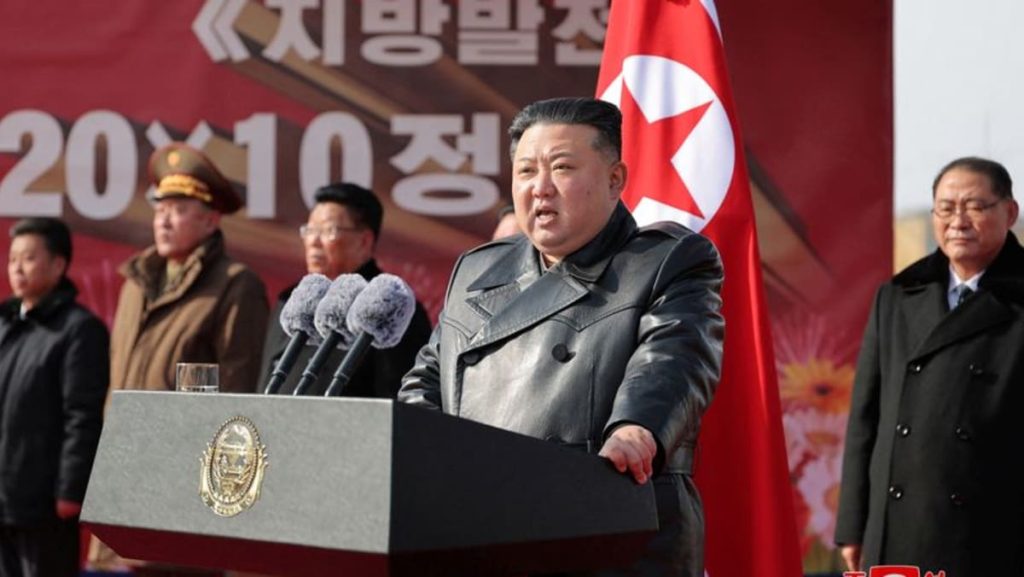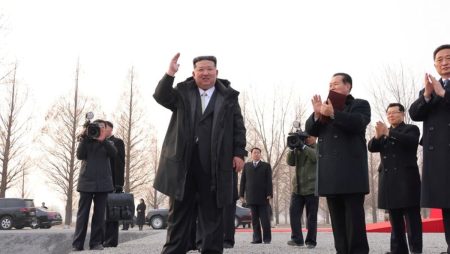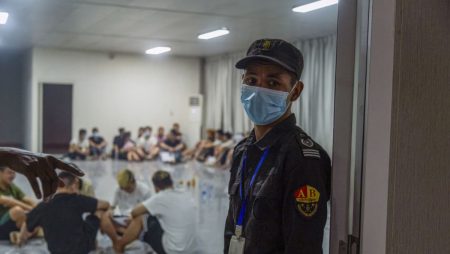U.S.-North Korea Relations: A Delicate Balance of Power and Diplomacy
The relationship between the United States and North Korea has long been a focal point of international diplomacy, marked by periods of tension and cautious optimism. Recently, U.S. President Donald Trump met with Japanese Prime Minister Shigeru Ishiba to discuss a range of pressing issues, including the growing concern over North Korea’s nuclear program. During this meeting, Trump expressed his willingness to engage with North Korea, signaling a potential shift in the U.S. approach to the region. However, this gesture was quickly met with a firm response from North Korean leader Kim Jong Un, who reaffirmed his country’s commitment to advancing its nuclear capabilities. This exchange highlights the delicate balance of power and diplomacy in the region, where even the smallest gestures can have significant implications.
North Korea’s Unwavering Commitment to Nuclear Development
Despite the international community’s concerns over its nuclear program, North Korea remains resolute in its pursuit of nuclear development. During a recent meeting, Kim Jong Un clarified once again the unshakable policy of further developing the nation’s nuclear forces. This statement serves as a clear indication that North Korea intends to continue down the path of nuclear advancement, undeterred by external pressure or diplomatic overtures. The country’s commitment to its nuclear program is deeply rooted in its strategic priorities, which emphasize self-reliance and the need to safeguard national security in a region often characterized by instability.
North Korea’s Stance on the Russia-Ukraine Conflict
The conflict in Ukraine has drawn global attention, with nations around the world taking sides or advocating for a peaceful resolution. North Korea has been clear in its support for Russia, with Kim Jong Un expressing solidarity with the Russian army and people. According to a recent report, Kim stated that the Democratic People’s Republic of Korea (DPRK) will "invariably support and encourage the just cause of the Russian army and people to defend their sovereignty, security, and territorial integrity." This stance aligns with the spirit of the comprehensive strategic partnership between North Korea and Russia, underscoring the strong bilateral ties between the two nations. The statement also reflects North Korea’s broader geopolitical strategy, which often involves aligning with nations that share similar views on sovereignty and security.
South Korea’s Suspicions of North Korean Troop Deployment
The relationship between North and South Korea remains tense, with ongoing suspicions about military activities. South Korea has recently expressed concerns that North Korea may be preparing to send additional troops to Russia, beyond the estimated 11,000 soldiers already deployed. This suspicion comes amid the ongoing conflict in Ukraine, where Russia has been engaged in a protracted war for several years. While North Korea has not publicly confirmed these suspicions, the possibility of further troop deployments raises questions about the extent of North Korea’s involvement in the conflict and its potential implications for regional stability. South Korea’s concerns are likely amplified by the historical tensions between the two Koreas, as well as the broader geopolitical dynamics at play.
Escalating Tensions Between North and South Korea
The animosity between North and South Korea continues to escalate, with both sides engaging in rhetoric that reflects their deeply entrenched positions. In a recent commentary released by the Korean Central News Agency (KCNA), North Korea sharply criticized South Korea’s military activities with the United States. The commentary warned that any aggressive actions would be met with "undesired consequences," signaling North Korea’s readiness to respond to perceived threats. KCNA also expressed frustration over the intensity of recent joint military exercises between South Korea and the U.S., which it viewed as provocative and destabilizing. The timing of these exercises, which coincided with canceled diplomacy schedules due to political turmoil, was seen as particularly egregious by North Korea.
Conclusion: The Fragile State of Regional and Global Diplomacy
The recent developments in U.S.-North Korea relations, North Korea’s stance on the Russia-Ukraine conflict, and the escalating tensions between North and South Korea all point to a fragile and complex geopolitical landscape. While the U.S. has expressed a willingness to engage with North Korea, the latter’s unwavering commitment to nuclear development and its support for Russia in the Ukraine conflict suggest that diplomacy will remain a challenging and uncertain path. Meanwhile, the animosity between North and South Korea continues to simmer, with both sides engaging in rhetoric and actions that underscore their deeply entrenched positions. As the international community navigates these challenges, it remains to be seen whether diplomacy can prevail or whether the region will continue down a path of increasing tension and instability.












